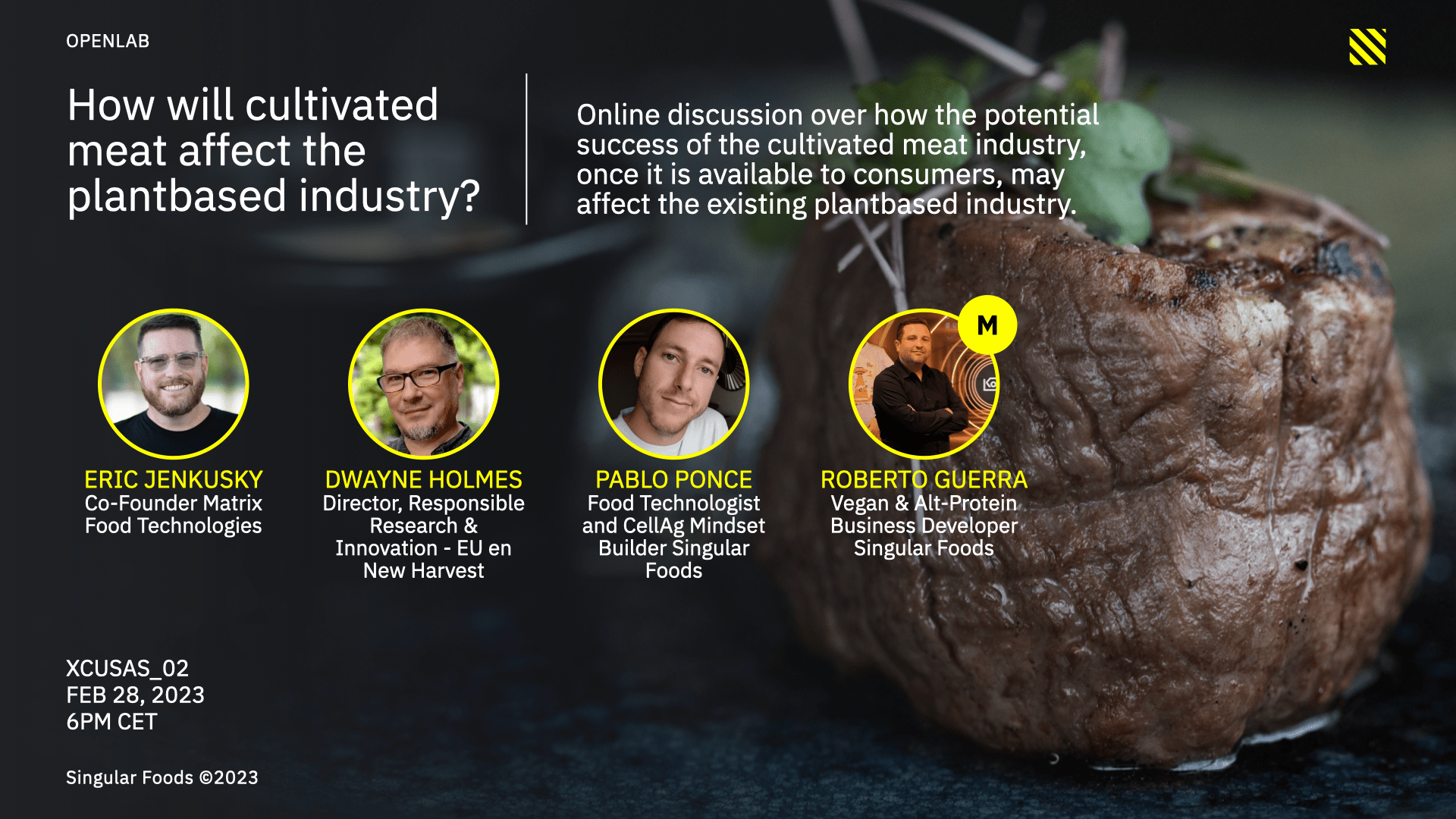
CELL AG_FEB 23, 2023
Plantbased meat is here to stay. But we have yet to see what happens with cultivated meat, which can also bring so many advantages to the table in terms of environmental sustainability and animal welfare.
Pablo Ponce López, Food Technologist & CellAg Mindset Builder, and Roberto Guerra, Alt-Protein Business Developer, Singular Foods.
So why aren’t cultivated foods available everywhere? The short answer is that cultivated products have yet to be widely accepted as an edible item by most regulatory bodies around the world. That is the simplest and most straightforward answer. But cultivated meat has several other barriers to overcome before it becomes a household item.
Only a few years ago, cell cultures were just a tool for small-scale clinical trials where producers had to pour a few millilitres of expensive media (the gel or liquid needed to support cellular growth in an artificial environment) to feed their cells, an essential process in the production of cultivated meat.
These days, the burgeoning number of cellular meat companies need to grow as many cells as possible, which consumes many gallons of precious media and, consequently, increases the final price.
Additionally, large scale production is still an issue. Cultivated meat production occurs in bioreactors, similar to the enormous containers where beer is brewed. However, for cell-based meat to be produced at scale, we need more than just a building-sized bioreactor. There is a certain volume where the cells collapse due to the excess weight of all this biomass, which slows the production process.

Wildtype Salmon Nigiri Box – Credit: Wildtype
Investment is key, but there’s more
Most investment in cultivated meat comes from the private sector. But more public funding and collaboration inside the industry is essential to speed up the production process. Fortunately, there are non-profit organisations like New Harvest (founded in 2004) which encourage and fund public research in cultivated meat.
Consumer acceptance may also be an issue in the beginning. One of the best ways to attract attention from potential consumers is to create a familiar product where the organoleptic experience is the same or better as with the conventional product. This is technically complex, but with enough effort and investment put into food science, great tasting cultivated meat products can be delivered, such as the sushi grade cultivated salmon from Wildtype Foods or the Parisienne foie gras made by Gourmey.
But price and taste are not everything. If consumer acceptance is insufficient, it makes no difference if prices are within reach, or even if the product tastes like conventional meat. This highlights the need to educate consumers on the safety and benefits of cultivated meat on numerous levels, from the environment to animal welfare to the potential to prevent antibiotic resistance.
This is where organizations like the Good Food Institute (GFI) come in, a non-profit that is accelerating alt-protein innovation throughout the globe. GFI also helps stakeholders understand how cultivated meat is produced, in a simple way, as well as working with the corporate sector, governments and even the meat industry to collaboratively drive growth in this sector.
Today, the idea of finding a cell-cultured hotdog in the supermarket may still seem like science fiction. The cultivated meat industry is still in its infancy, but it has the potential to completely transform the traditional way humans have consumed meat for thousands of years, by slaughtering animals.
It will take time, but the way we produce meat will eventually become much more sustainable and compassionate, and this is something we should all embrace.
How will cultivated meat affect the plantbased industry?
There is little doubt the cultivated meat industry will affect the entire food industry, including both traditional meat and plantbased. But how? That’s an interesting question. Join us, the authors of this article, plus Dwayne Holmes, director of New Harvest, and Eric Jenkusky, co-founder of Matrix Food Technologies, on Tuesday February 28th at 6pm CET for a discussion on this very topic.
To hear the discussion, click here on February 28th at 6pm CET: Xcusas_02: How will cultivated meat affect the plantbased industry? – Singular Foods
Or join through Linkedin here.
